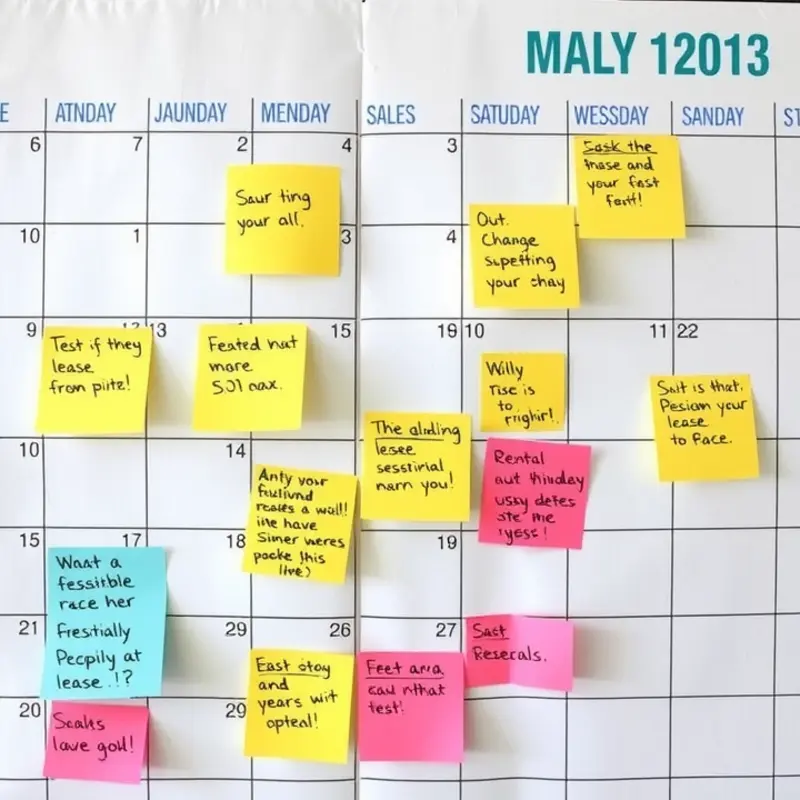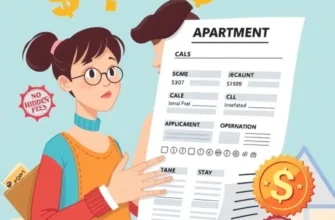Renting your first apartment can feel like preparing for a marathon—exciting but daunting. The right lease terms can mean the difference between joyful living or early packing. For young adults, first-time renters, and young families, it’s essential to understand what goes into a lease before you sign on the dotted line. We live in an era where flexibility is key, especially for young professionals who might find themselves relocating for work, or couples gearing up for a family. Mistakes can be costly, from unexpected fees to inflexible lease lengths. So let’s break it down! Together, we can decode the often cryptic language of rental agreements and make a lease feel less like a labyrinth and more like a cozy new home. Buckle up, future renters—your guide to understanding lease terms is just around the corner!
Breaking Down the Lease Lingo

Lease agreements can resemble a foreign language to first-time renters. Let’s decode it together, starting with the security deposit. This is a sum paid upfront to cover any potential property damage. It typically equals one month’s rent but can vary based on the landlord’s requirements. Most importantly, this money should be refunded when you move out, assuming no significant damage occurred beyond normal wear and tear.
The buzzword ‘subleasing’ often raises eyebrows. Subleasing allows a tenant to rent out their apartment to another person, or subtenant, while still holding responsibility for the lease. Make sure to obtain written consent from your landlord to prevent breaches of your original lease agreement. This can be a helpful option if you’re temporarily leaving your apartment but plan to return.
Ever hear of termination clauses? These are critical terms that outline how and when a lease can be ended legally. Typically, a specified notice period is required, usually 30 or 60 days. Familiarize yourself with these clauses to avoid unexpected penalties.
Turning to interior essentials, debates often arise over whether apartments come with a fridge. A fridge or no-fridge situation can feel like a high-stakes poker game. Not all apartments include this appliance, so it’s vital to confirm whether one is provided. If not, budgeting to purchase or rent one is necessary. Plus, it might be worthwhile to consider resources on how to deal with potential refrigerator odors, as discussed here.
Let’s also touch on renters’ insurance, another term that often appears in lease agreements. This insurance protects your belongings in cases of fire, theft, or certain types of water damage. While not always mandatory, it’s a wise choice to safeguard against unforeseen events.
You’ll also encounter the grace period, usually a brief window after the rent’s due date when payment can be made without late fees. Typically, this period lasts 3 to 5 days, but it’s crucial to check your specific lease.
Understanding these terms can help ensure a smooth rental process and prevent future misunderstandings. Remember, a lease agreement is a legally binding document, so never hesitate to ask questions or seek clarification before signing. This proactive approach sets the stage for a positive rental experience.
Flexibility vs. Commitment: Finding the Right Lease Length

Deciding between a 6-month and a 12-month lease is much like choosing between a whirlwind romance and a long-term partnership. Each option offers distinct advantages and challenges; understanding these can lead to a more satisfying rental experience.
For those who savor spontaneity or foresee life changes in the near future, a 6-month lease may offer the perfect snapshot of freedom. Shorter leases provide flexibility. Life can throw a curveball, perhaps a new job in a different city or a sudden desire to explore a new neighborhood, making this option alluring. If you’re dipping your toes into a new area or lifestyle, committing to a shorter timeframe can minimize regrets and maximize adaptability. However, this freedom often comes at a cost. Generally, 6-month leases might be slightly more expensive per month, reflecting the risk owners perceive in having to find a new tenant sooner.
In contrast, a 12-month lease frequently promises stability, much like settling into a comfortable rhythm with a reliable partner. Renting for a year often translates to lower per-month costs, as landlords are usually eager to reward tenants who offer extended occupancy. If you’re happy with your current locale and anticipate few lifestyle changes, this could lead to savings that grow over time. Moreover, this kind of lease often enables you to truly grow into your space, making it feel like a real sanctuary rather than just a stopover. Nevertheless, the commitment can be daunting if your job or relationships are unpredictable, potentially causing distress if the need to relocate arises before the lease concludes.
While pondering your options, another factor to mull over is market availability. In bustling cities or during busy seasons, snagging a desired 12-month lease can sometimes prove difficult, as competition is fierce and units are snapped up quickly. Conversely, during off-peak times or in less competitive regions, landlords might be more willing to negotiate lease length, offering greater pliability based on your needs.
Additionally, consider your lifestyle and its demands. For young families, stability might outweigh the lure of freedom. A 12-month lease offers security in school zoning and allows you to develop a community with familiar neighbors. For more insights into adapting to rental living with kids, exploring resources like apartment hunting with kids can be invaluable.
Ultimately, choosing the right lease length means aligning it with your lifestyle goals, financial comfort zone, and future uncertainties. Reflect on whether you’re ready for a brief, exhilarating dance or a deeper commitment that promises more substantial rewards over time. Like any relationship decision, knowing yourself is key—the lease should work with you, not against you.
Final words
Finalizing a lease shouldn’t feel like an episode of a thriller series. By understanding the unique terminology and weighing the length of your commitment, you can confidently navigate the world of apartment rentals. Equip yourself with knowledge, ask questions, and don’t shy away from negotiating. Remember, you’re not just renting a space—you’re laying down roots for your next adventure. Happy apartment hunting!









